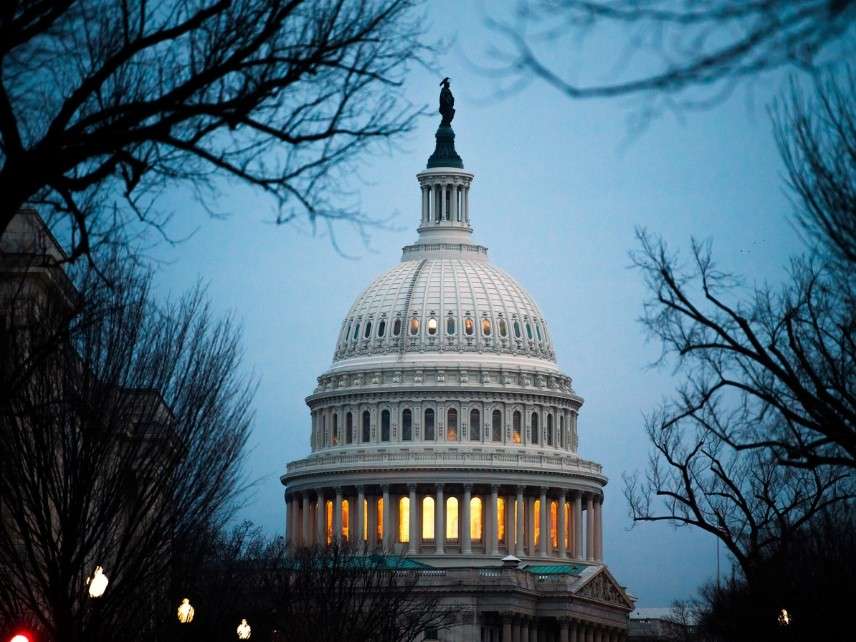Americans' Least Favorite Company Isn't Even a Company. Can You Guess What It Is?
No matter their age or political persuasion, Americans have similar thoughts on this one.

According to a new Axios Harris Poll, Americans' least favorite company is the U.S. government.
The fact that the U.S. government even made it onto the list is surprising in itself, considering the fact that it's not actually a company. A sample of 6,188 Americans were asked to name the company they believed to have the best reputation and the one with the worst. Then, Axios and Harris took the top 100 "most visible" companies and asked a separate group of 18,228 people to rate them based on a variety of factors.
Last year the U.S. government didn't make the "most visible" list. This year it did, and the results speak for themselves.
Political party identification didn't matter. "Republicans ranked the government #95 out of the 100 companies, Democrats ranked it #98, and independents put it dead last," Axios says. (Independents make up the largest percentage of Americans, so it shouldn't be surprising if their responses counted more toward the final ranking.)
Age didn't matter either. The U.S. government is the second-least-favorite company among millennials, the least favorite among Generation Xers, and the third-least-favorite among Baby Boomers. The pre–Baby Boom "silent generation" ranked it seventh to last.
So why don't Americans like their government? "They're just fed up—fed up with the shutdowns, the subpoenas, the wall," Harris Poll CEO John Gerzema tells Axios. "It comes out as one perpetual negative news cycle [that] really drives down your reputation." President Donald Trump doesn't help things either, Axios says. (The Trump Organization is Americans' third-least-favorite company.)
The U.S. government did poorly in all areas. Respondents said it has the second-to-worst business trajectory, organizational character, and vision, as well as the third-worst products and services, growth, and citizenship. The government was ranked as the worst company in terms of both ethics and trust, though it did earn the #96 spot in the culture category. And just nine percent of respondents said they agree that the government "shares my values."
In fact, the pollsters report,
the traditional issues government was once expected to solve are now offered by Americans as invitations to business. For example, 54% of the public want companies to make an impact on Job Creation, but only 24% feel companies are actually having a positive impact. Similarly the public also wants companies to address Immigration (41%), Education (59%), Health Care (66%), Environment (49%) but feel more can be done, as less than 20% feel companies are making a positive impact across these issues.
These attitudes are not terribly surprising. Last month, Reason's Nick Gillespie noted that a record-high number of Americans consider the government to be "the most important threat facing the U.S." According to Gallup, 35 percent of Americans believe that to be true, compared to the previous high of 33 percent back when the government was shut down in 2013.
With so many people disliking the government, it's fair to wonder how a presidential candidate like Sen. Bernie Sanders (I–Vt.) will be able to appeal to mainstream voters. After all, the socialism that Sanders espouses would mean the government gets more involved in people's lives. But if people already think the government is doing a bad job as it is, why would they vote for more government?
Maybe they won't. According to an NBC News/Wall Street Journal poll released earlier this week, just 18 percent of respondents view the term socialism in a positive light, compared to 50 percent who view it negatively. Support for socialism can shift greatly based on how the term itself is defined, as Reason's Elizabeth Nolan Brown has explained. But these polls seem to suggest that many Americans are looking for less government, not more.


Show Comments (126)